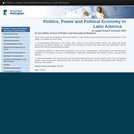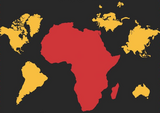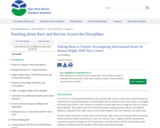
This is a module framework. It can be viewed online or downloaded as a zip file.
As taught Autumn Semester 2010/2011.
This module explores and analyses democratic politics in Latin America since the third wave of democratization in the 1980s. It is divided into three parts:
1. Conceptualising democracy in the region with a focus on the debate between those who argue that liberal democracy and liberal markets are necessary and desirable and those who argue that only experiments that go beyond both will truly democratise the region.
2. Explaining problems in democratic development such as lack of participation, representation and citizenship with reference to the political economy of neoliberalism, dependent development and political culture, amongst other theories.
3. Asking the question: who are the actors who will democratise democracy in Latin America, with a focus on political parties, social movements, elites/technocrats and NGOs. All discussions will be contextualised with reference to particular case studies.
Module Code: M13098
Credits: 20
Suitable for study at: Undergraduate level 3
Dr Sara Motta, School of Politics and International Relations
Dr Sara Motta obtained her BA in Philosophy and MSc in The Politics of Development (Latin America) from the London School of Economics and Political Science. She completed her PhD at the Department of Government, LSE under the supervision of Dr Francisco Panizza and Professor Rodney Barker in 2005. She was appointed as a three year Tutorial Fellow in Comparative and Latin American Politics in the Government Department, LSE before being appointed to lectureship in Politics at the School of Politics and International Relations, University of Nottingham in 2007.
Dr Motta's teaching interests are in the broad themes of comparative political economy of the Global South, popular politics and social movements in Latin America, comparative political analysis of democracy and development in Latin America and the politics of knowledge.
Dr Motta's research focus is the politics of subaltern resistance, with particular reference to Latin America.
- Subject:
- Social Science
- Material Type:
- Syllabus
- Provider:
- University of Nottingham
- Author:
- Dr Sara Motta
- Date Added:
- 03/24/2017

